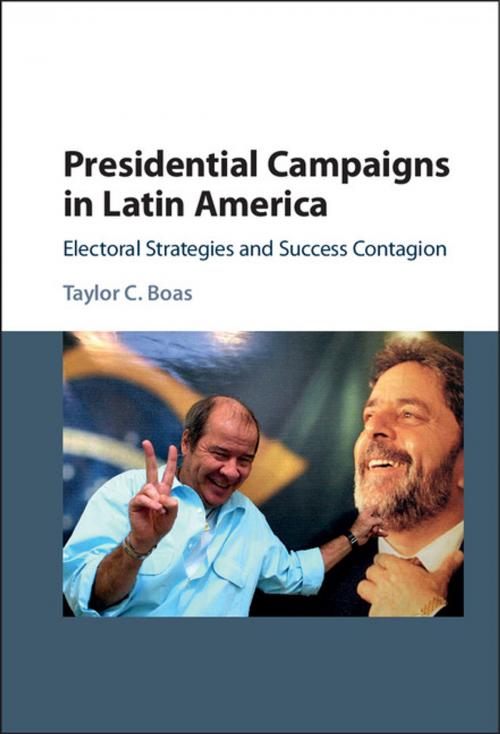Presidential Campaigns in Latin America
Electoral Strategies and Success Contagion
Nonfiction, Social & Cultural Studies, Political Science, Politics, Practical Politics, Government| Author: | Taylor C. Boas | ISBN: | 9781316545270 |
| Publisher: | Cambridge University Press | Publication: | March 4, 2016 |
| Imprint: | Cambridge University Press | Language: | English |
| Author: | Taylor C. Boas |
| ISBN: | 9781316545270 |
| Publisher: | Cambridge University Press |
| Publication: | March 4, 2016 |
| Imprint: | Cambridge University Press |
| Language: | English |
How do presidential candidates in new democracies choose their campaign strategies, and what strategies do they adopt? In contrast to the claim that campaigns around the world are becoming more similar to one another, Taylor Boas argues that new democracies are likely to develop nationally specific approaches to electioneering through a process called success contagion. The theory of success contagion holds that the first elected president to complete a successful term in office establishes a national model of campaign strategy that other candidates will adopt in the future. He develops this argument for the cases of Chile, Brazil, and Peru, drawing on interviews with campaign strategists and content analysis of candidates' television advertising from the 1980s through 2011. The author concludes by testing the argument in ten other new democracies around the world, demonstrating substantial support for the theory.
How do presidential candidates in new democracies choose their campaign strategies, and what strategies do they adopt? In contrast to the claim that campaigns around the world are becoming more similar to one another, Taylor Boas argues that new democracies are likely to develop nationally specific approaches to electioneering through a process called success contagion. The theory of success contagion holds that the first elected president to complete a successful term in office establishes a national model of campaign strategy that other candidates will adopt in the future. He develops this argument for the cases of Chile, Brazil, and Peru, drawing on interviews with campaign strategists and content analysis of candidates' television advertising from the 1980s through 2011. The author concludes by testing the argument in ten other new democracies around the world, demonstrating substantial support for the theory.















